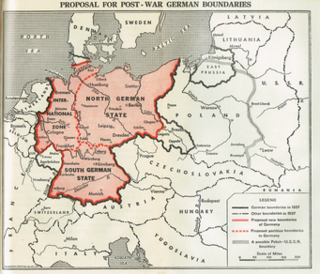
The Morgenthau Plan was a proposal to weaken Germany following World War II by eliminating its arms industry and removing or destroying other key industries basic to military strength. This included the removal or destruction of all industrial plants and equipment in the Ruhr. It was first proposed by United States Secretary of the Treasury Henry Morgenthau Jr. in a 1944 memorandum entitled Suggested Post-Surrender Program for Germany.
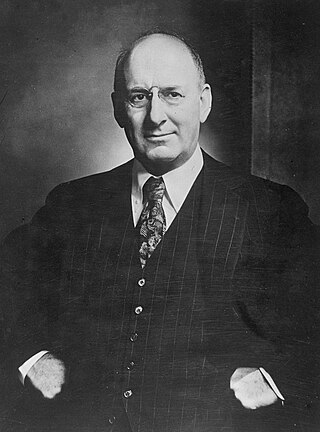
Henry Morgenthau Jr. was the United States Secretary of the Treasury during most of the administration of Franklin D. Roosevelt. He played a major role in designing and financing the New Deal. After 1937, while still in charge of the Treasury, he played the central role in financing United States participation in World War II. He also played an increasingly major role in shaping foreign policy, especially with respect to Lend-Lease, support for China, helping Jewish refugees, and proposing measures to deindustrialise Germany.
Henry Morgenthau may refer to:
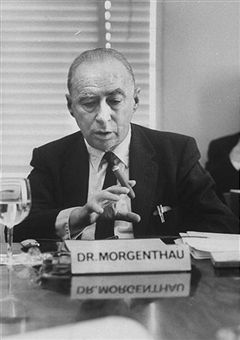
Hans Joachim Morgenthau was a German-American jurist and political scientist who was one of the major 20th-century figures in the study of international relations. Morgenthau's works belong to the tradition of realism in international relations theory; he is usually considered among the most influential realists of the post-World War II period. Morgenthau made landmark contributions to international relations theory and the study of international law. His Politics Among Nations, first published in 1948, went through five editions during his lifetime and was widely adopted as a textbook in U.S. universities. While Morgenthau emphasized the centrality of power and "the national interest," the subtitle of Politics Among Nations—"the struggle for power and peace"—indicates his concern not only with the struggle for power but also with the ways in which it is limited by ethical and legal norms.
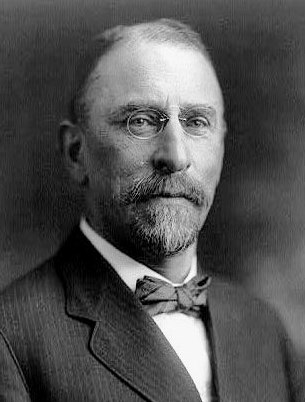
Henry Morgenthau was a German-born American lawyer and businessman, best known for his role as the ambassador to the Ottoman Empire during World War I. Morgenthau was one of the most prominent Americans who spoke about the Greek genocide and the Armenian genocide of which he stated, "I am firmly convinced that this is the greatest crime of the ages".
Schaefer is an alternative spelling and cognate for the German word schäfer, meaning 'shepherd', which itself descends from the Old High German scāphare. Variants "Shaefer", "Schäfer", the additional alternative spelling "Schäffer", and the anglicised forms "Schaeffer", "Schaffer", "Shaffer", "Shafer", and "Schafer" are all common surnames.
Becher is a surname. Notable people with the surname include:
Moller, Möller, Møller or von Möller is a surname. Notable people with the surname include:

The Pinsk massacre was the mass execution of thirty-five Jewish residents of Pinsk on April 5, 1919, by the Polish Army. The Polish commander "sought to terrorize the Jewish population" after claiming to being warned by two Jewish soldiers about a possible Bolshevik uprising. The event occurred during the opening stages of the Polish–Soviet War, after the Polish Army had captured Pinsk. The Jews who were executed had been arrested while meeting in a Zionist center to discuss the distribution of American relief aid; the meeting was described by the Poles as an "illegal gathering". The Polish officer-in-charge ordered the summary execution of the meeting participants without trial, and based on the information about the gathering's purpose that was founded on hearsay. The officer's decision was defended by high-ranking Polish military officers, but was widely criticized by international public opinion.
The Morgenthau report, officially the Report of the Mission of the United States to Poland, was a report compiled by Henry Morgenthau, Sr., as member of the "Mission of the United States to Poland" which was appointed by the American Commission to Negotiate Peace formed by President Woodrow Wilson in the aftermath of World War I. The purpose of the mission was to investigate "alleged Polish pogroms" and the "treatment of the Jewish people" in Poland. The mission consisted of three American members: former US ambassador Henry Morgenthau, Brigadier General Edgar Jadwin of Engineer Corps, and professor of law Homer H. Johnson from Cleveland; and from the British side Sir Stuart M. Samuel. They were selected to investigate accounts of mistreatment of Jews in the newly-reborn Second Polish Republic. The report by Morgenthau was published on October 3, 1919.
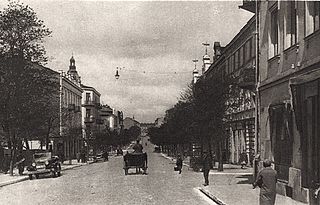
The Kielce pogrom of 1918 refers to the events that occurred on 11 November 1918, in the Polish city of Kielce located in current Świętokrzyskie Voivodeship. According to 1919 Report by Henry Morgenthau, Sr. who led the Mission of The United States to Poland; during Poland's fight for independence towards the end of the First World War, shortly after the Austro-Hungarian troops were evacuated from Kielce by their military command, the city authorities allowed local Jewish community to hold a rally at the Polish Theatre. The participants rallied behind the Jewish demand for political and cultural autonomy. According to one U.S. source, during the rally, anti-Polish speeches were also being delivered. A respected lawyer, Mr. Frajzyngier, who attempted to deliver a public address in Polish was booed. The angry audience shouted: "No Polish language here!" According to Stanisław Białek from the Jan Karski Society, the voices of protest sparked a rumour about the anti-Polish character of the meeting. As the meeting went on, a crowd of Polish onlookers gathered outside the theatre.

Ambassador Morgenthau's Story (1918) is the title of the published memoirs of Henry Morgenthau Sr., U.S. Ambassador to the Ottoman Empire from 1913 to 1916, until the day of his resignation from the post. The book was dedicated to the then U.S. President Woodrow Wilson, and it took over two years to complete. The ghostwriter for Henry Morgenthau was Burton J. Hendrick; however, a comparison with official documents filed by Morgenthau in his role as ambassador shows that the book must have been structured and written extensively by Morgenthau himself.

The Lwów pogrom was a pogrom perpetrated by Polish soldiers and civilians against the Jewish population of the city of Lwów. It happened on 21–23 November 1918, during the Polish–Ukrainian War that followed World War I.
The Lehman family is a prominent family of Jewish German-Americans who founded the financial firm Lehman Brothers. Some were also involved in American politics. Members have married into the prominent Morgenthau, Loeb, and Bronfman families.
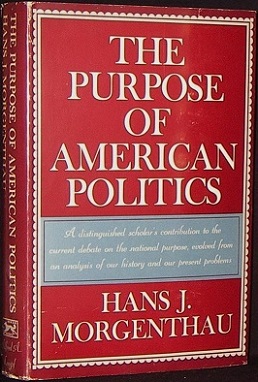
The Purpose of American Politics is a book published in 1960 by the realist academic and political commentator Hans Morgenthau. In the book, Morgenthau defines the purpose of American politics as "the achievement of freedom".
Morgenthaler is a family name from German speaking Europe.
Small is an English and Scottish surname, and it derives from the Old Norse Smålig meaning someone who is narrow or thin. Notable people with the surname include:
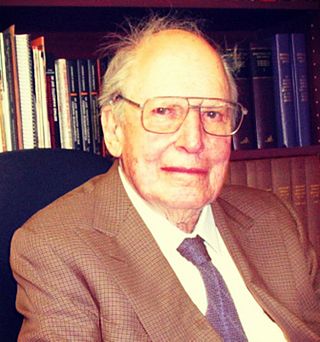
Henry Morgenthau III was an American author and television producer, and scion of the Morgenthau dynasty and member of the Lehman family.
Report to the Secretary on the Acquiescence of This Government in the Murder of the Jews was the initial title of a government memorandum prepared by officials of the United States Department of the Treasury. Dated January 13, 1944, during the Holocaust, its primary author was Josiah E. DuBois Jr., Assistant to the Secretary of the Treasury. Focusing on the period from late 1942 to late 1943, the report argued that certain officials within the US State Department not only had failed to use US government tools to rescue Jewish European refugees but instead had used them to prevent or obstruct rescue attempts, as well as preventing relevant information from being made available to the American public. Described as "political dynamite", the memorandum, shortened and re-titled Personal Report to the President, helped convince President Franklin D. Roosevelt to approve the creation of the War Refugee Board.
Taft is an English surname. Notable people with the surname include:









